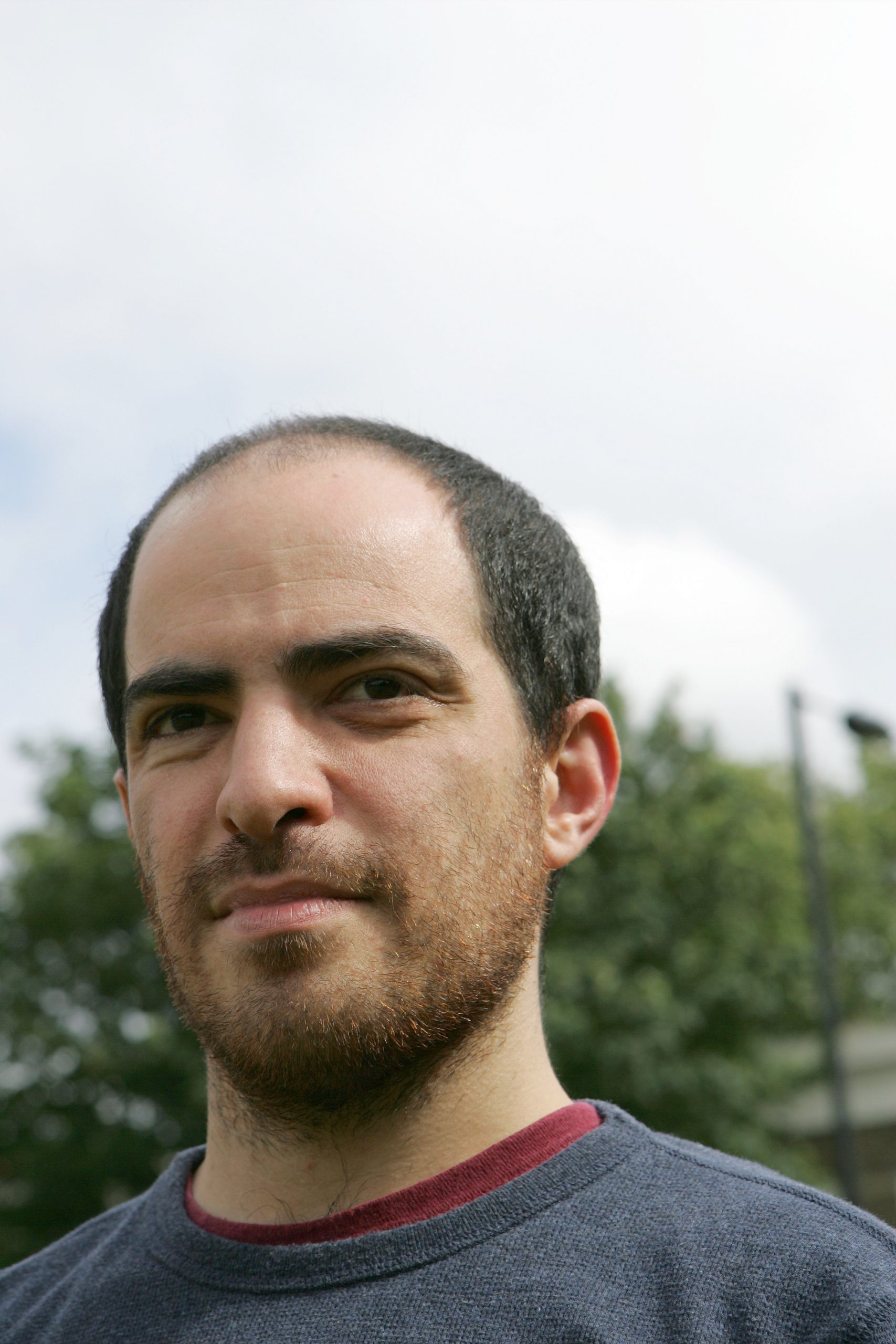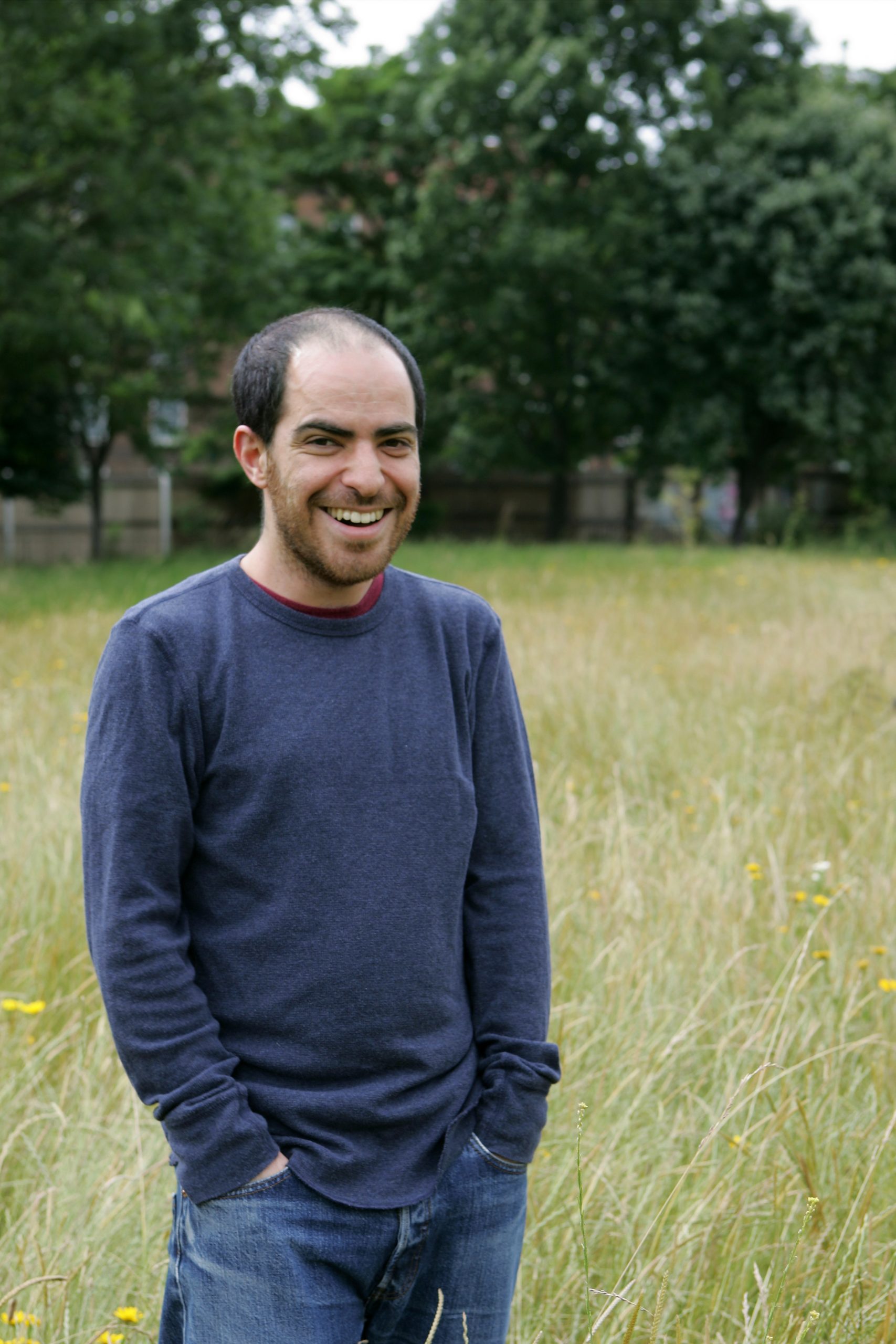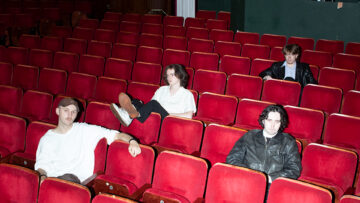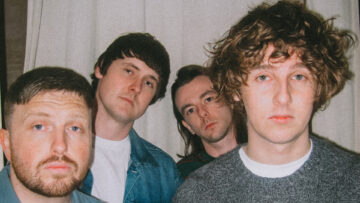
“My granddad is a minor celebrity,” says Ben Jacobs, talking to me over Zoom from his home in Walthamstow. “He’s called Harry Jacobs and he’s a photographer in South London. He documented the arrival of Windrush people to Brixton, where he had his studio. Sometimes there are exhibitions of his work during Black History Month. I’m not really a celebrity though – which is where you come in.”
Ben makes music under the pseudonym Max Tundra, and has done since the late 1990s. His three albums – Some Best Friend You Turned Out to Be (2000), Mastered by Guy at The Exchange (2002) and Parallax Error Beheads You (2008) – are collections of lightspeed and maximalist dance music retroactively categorised as hyperpop. It’s a genre that’s meant big bucks and TikTok stardom for the likes of Charli XCX and A.G. Cook, and Ben was a progenitor at its forefront.
Yet, Ben isn’t famous. He’s not got the Malibu mansion or seventeen swimming pools of most pop pioneers. Instead he lives in London with his partner and five-year-old son, and works your standard 9–5 office job. At the start of our interview, he lays out in no uncertain terms what he wants our conversation to achieve. “You’re gonna make me famous and you’re gonna make me rich,” he declares, tongue firmly planted in his cheek, “and it’s all gonna happen over the next 45 minutes.

“I do feel quite obscure,” Ben continues. “I have a day job and I don’t make a living off my music, yet it’s somehow influential, or so I’m told. I feel like I would like to make a living off music, and that I have the skillset to do so, but I don’t have the kind of contacts that’d let me work with big pop acts. I don’t move in those sorts of circles.”
It’s not surprising the mainstream hasn’t taken to Max Tundra the way it has to hyperpop’s modern masters. It’d probably struggle to keep up. The musician admits, “I purposefully try and invent a new genre every time I do a track.”
Stick on Mastered by Guy at The Exchange and you’re instantly swept up in the funk-jazz sprint of ‘Merman’, before ‘MBGATE’ crashes down into heavy and plodding yet polyrhythmic rock. Then ‘Lysine’ is a synthpop number, ‘Fuerte’ primitively booms and bubbles like the score of arcade game Galaga and ‘Pocket’ is a happy-go-lucky clapalong. It’s music that’s consistently inconsistent, tethered together only by its mind-bending haste.
Ben concedes that such restless eclecticism “makes it hard for the people in the record shops to know where to put my music. Journalists can’t classify it, either. But I think it would be remiss to just make a track that sounds like other people. I feel like there’s already a lot of people doing that kind of thing.”
As you can easily imagine, such hectic music takes plenty of time, and it’s currently been fourteen years since Max Tundra last released a full-length album. Nonetheless, with the incessant pop methodology that he pioneered currently enjoying something of a heyday, he’s capitalising by reissuing his complete discography and dropping a remix album, Remixtape.
“Myself and Domino [Ben’s record label] felt that it reached a critical mass of people suggesting that my music had influenced a lot of stuff that’s going on these days,” Ben explains. “They thought it would be appropriate, especially as Mastered by Guy at The Exchange is about to have its twentieth anniversary. We wanted to put all this stuff back out there, get some contemporary names to remix the tracks and bring it into the modern age.”
It’s ironic that Ben wants to bring Max Tundra forward into the 2020s, since, when he started, the project was exclusively rooted in ’80s nostalgia. Ben grew up in South London in a house obsessed with ’60s music, like Joni Mitchell and the Beatles, and classical. He recalls: “I just sat around putting records on” – which no doubt set the stage for the borderless music he’d later make.
“I was quite young when I started buying records. I think I was eight. They used to have seven-inch singles in bars and restaurants, and then a month later, when they’re out of the charts, they’d put them in local corner shops. It would be like a carousel of new music!”

Ben was also immersed in video game music – despite not being at all interested in gaming. Whenever the family would go on holiday to Littlehampton, he and his sister would spend their time in the arcade rooms.
“You could count on one hand the video games I played growing up,” he remembers. “I was certainly influenced by the sound of them, though. I always heard it in the arcades and when my friends were playing games, but it always felt to me that twenty minutes spent playing a video game is twenty minutes you could use to refine hi-hat samples or empty the dishwasher.”
Although not a gamer, Ben was certainly a computer geek. He won an early-’80s Acorn Electron in a school competition and, when the Commodore Amiga came out in the middle of the decade, he read all about its sound chip capabilities and MIDI interfaces. He bought one using his bar mitzvah money, and he occasionally fiddled with games like Shoot ’Em Up Construction Kit – “a game where you design your own sprites, so of course the first thing I did was make a spaceship that looked like a willy and fired out sperm.”
However, Ben’s main goal for the computer was always to make music with it. “Really, all I would do on the Amiga was make music. Before I got it, all I thought about was, ‘When I get this Amiga, I’m going to plug it into this and do that and record it.’ It was never like, ‘Oh, I really want to play Paradroid or whatever.’”
Ben recorded the first Max Tundra album, the purely instrumental Some Best Friend You Turned Out to Be, using his Amiga alone. He started his career using the pseudonym because, in his own words: “I thought Ben Jacobs didn’t sound very rock ’n’ roll.
“I liked Max Tundra because it could be a person or a band,” he adds. “It just popped into my head one day and it had this ambiguity about it. Many years ago, after school, my granddad asked, ‘Why did they give you that name?!’, as if I’d been saddled with it against my will. I think he was slightly hurt that I didn’t find ‘Ben Jacobs’ rock ’n’ roll enough.”
In 2002, Mastered by Guy at The Exchange expanded the Max Tundra canon by introducing vocals, and the album reaped underground acclaim. Pitchfork even placed it in their top fifty albums of the year. Then real life slowed things down. It took six years for Parallax Error Beheads You to come out. Since then, Ben has had a baby boy, only decelerating his musical career further, although he has occasionally produced for such acts as Daphne and Celeste.
“When my son’s awake and he’s around, it almost feels indulgent going off and doing music,” he explains. “I want him to have a nice day, every day. My priority in life is just making sure he has an amazing childhood, really.”

The Max Tundra machine may be slow, but it’s by no means stalled. Ben is currently working on a fourth album, which he’ll release “as soon as it’s ready – although God knows when that’s gonna be”. He laughs: “It would be rude not to with all this hype going on at the minute.”
In the longer term, Ben’s as driven as ever to make music his full-time work. Songwriting, scoring movies, producing – as long as he gets to make a racket and people want to hear it, he’s desperate to do it. “My ultimate dream is to work on a track and then, three months later, hear it on the radio without leaving the house.”
Remixtape and reissues of Some Best Friend You Turned Out to Be, Mastered by Guy at The Exchange and Parallax Error Beheads You are out on 12 August via Domino.
The Kero Kero Bonito remix of ‘MBGATE’ is out now.




